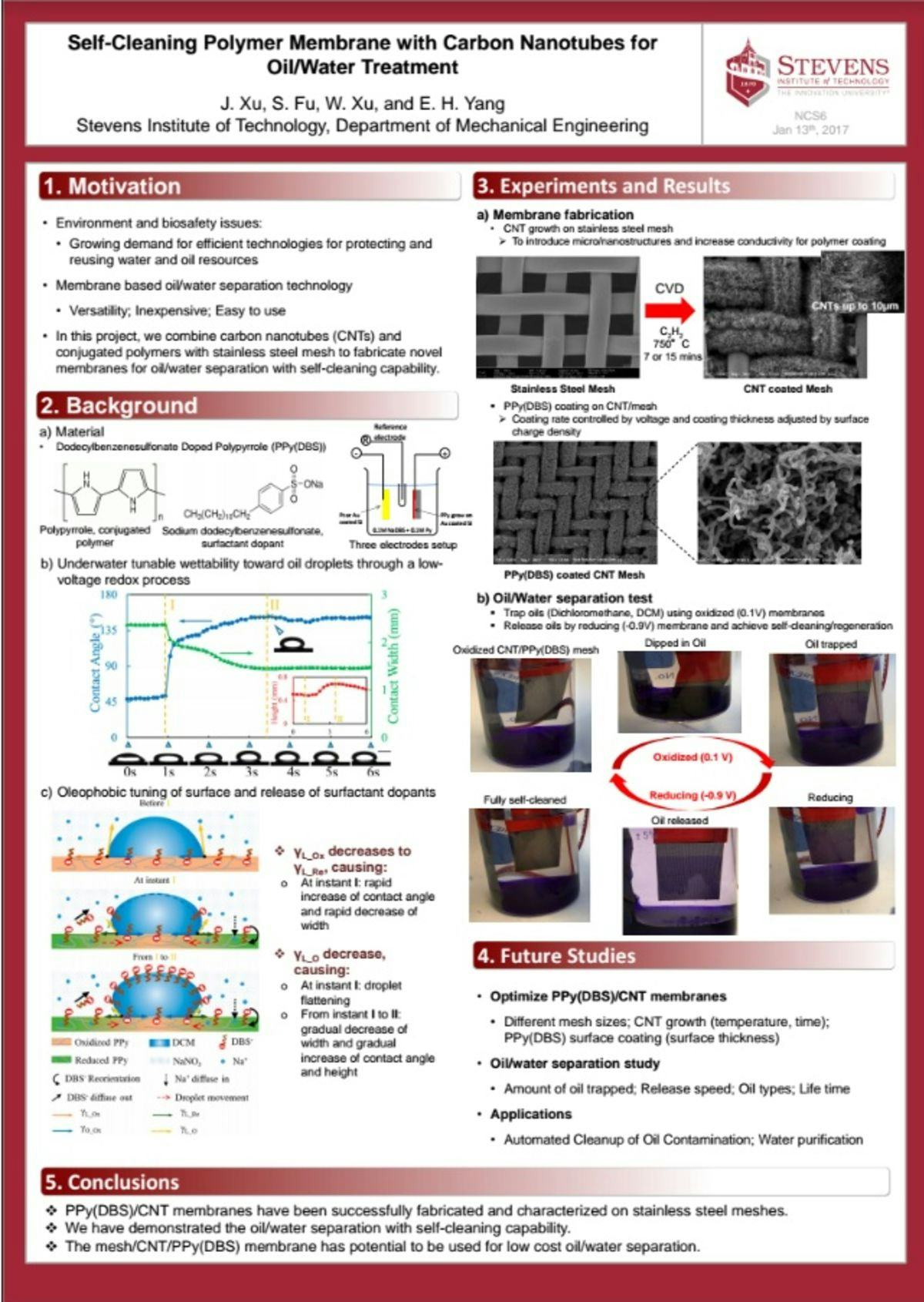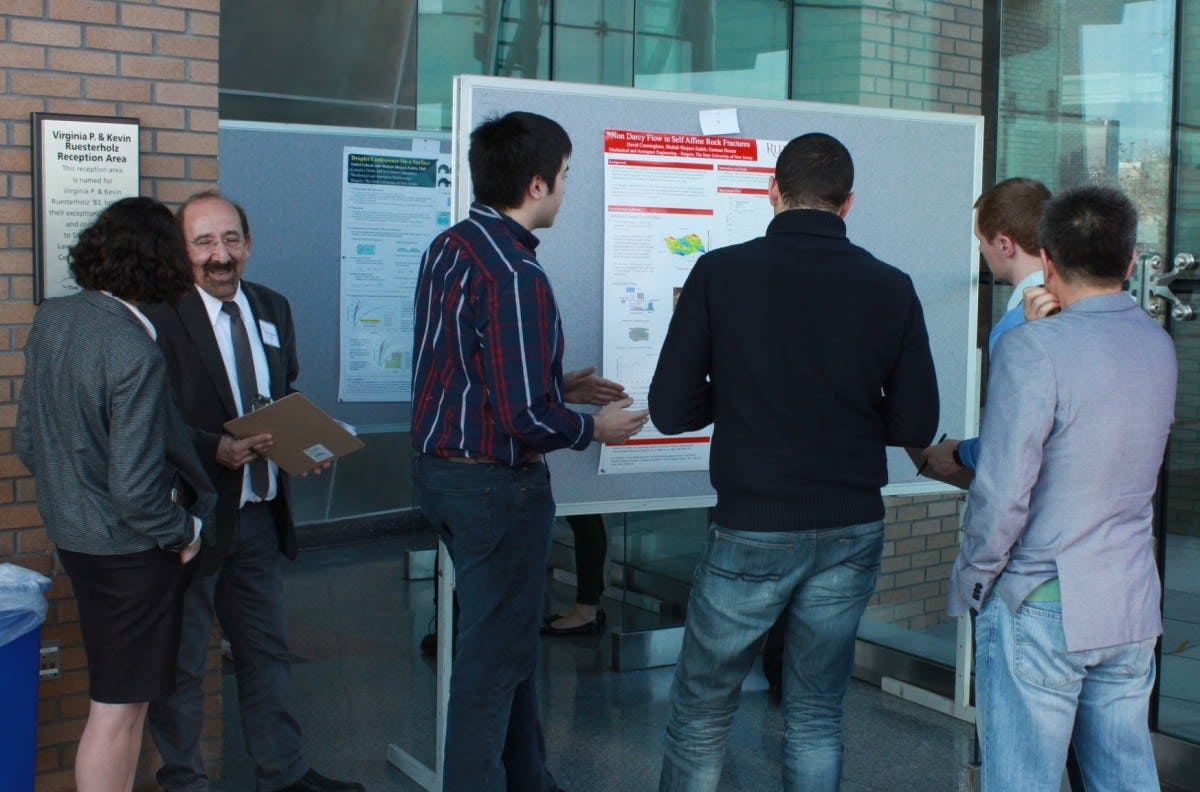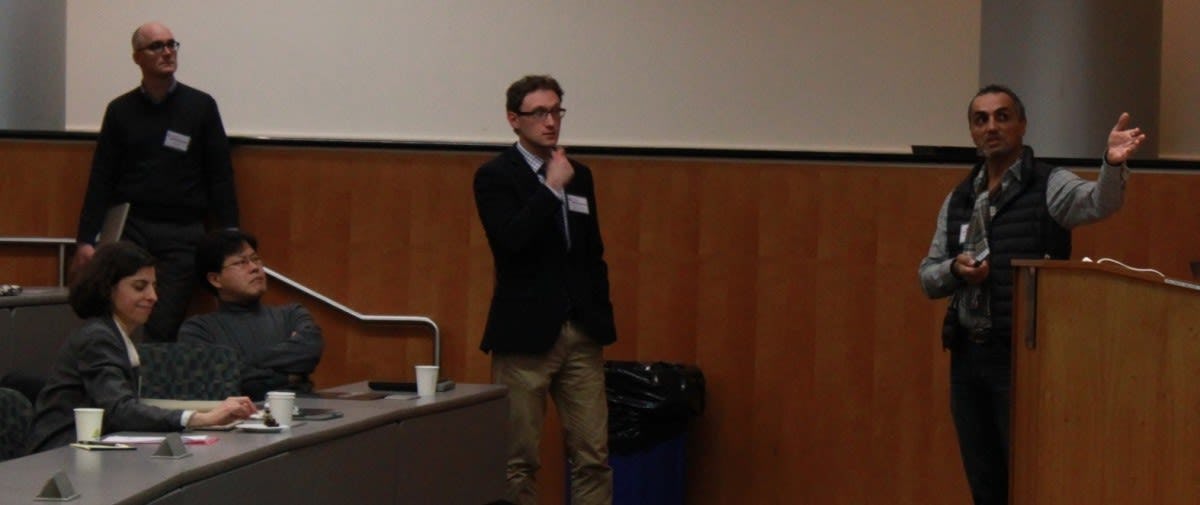On January 13, Stevens graduate students joined 80 peers and researchers from Columbia University, New Jersey Institute of Technology, and other key research universities for The 6th Northeast Complex Fluids & Soft Matter Workshop. Hosted by the mechanical engineering department at the Schaefer School, the workshop was a one-day opportunity for researchers to come together, exchange ideas, and foster collaboration. This was the first time the workshop was held at Stevens -- and that advantage allowed our students to shine.
At Stevens, students explore experimental, theoretical, and computational applications of fluid mechanics -- or, how fluids behave under the laws of force and motion. Students study how complex fluids and soft matter like polymers, granular materials, biomaterials, colloids, foams, and liquid crystals behave differently under those same laws. By studying those behaviors, students are able to create solutions to problems in various mechanical engineering fields. One application is designing a coating for ships that reduces drag and increases speed and fuel efficiency. Other applications include microfluids and surface tension, a “lab on a chip” that isolates individual biological cells for examination, and even self-cleaning membranes -- as Stevens student Jian Xu explained on this poster:
For many master’s students, this was the first time they had presented their research. Like Xu, they created posters explaining their specific areas of focus and were able to discuss them during a designated session at the workshop. Areas of research include “evaporation controlled particle patterns in a polymer droplet” and “flow behavior of nanoparticle-stabilized foam in porous media.”
Ph.D. students were also able to share their research. They gave 10-minute slide presentations explaining their work and its eventual application. Areas of research include “low-voltage droplet manipulation via tunable wetting on smart polymers” and “a comparison between static de-icing and dynamic anti-icing properties of superhydrophobic surfaces.”
Exciting as the research is, the workshop couldn’t have happened with the involvement and participation of mechanical engineering and other Schaefer School faculty - particularly Professor Kevin Connington, who brought the conference with him from City College of New York. The next workshop will be held later this year at Princeton University. And as the community of researchers in this field continues to grow, Stevens will continue to advance the research.





